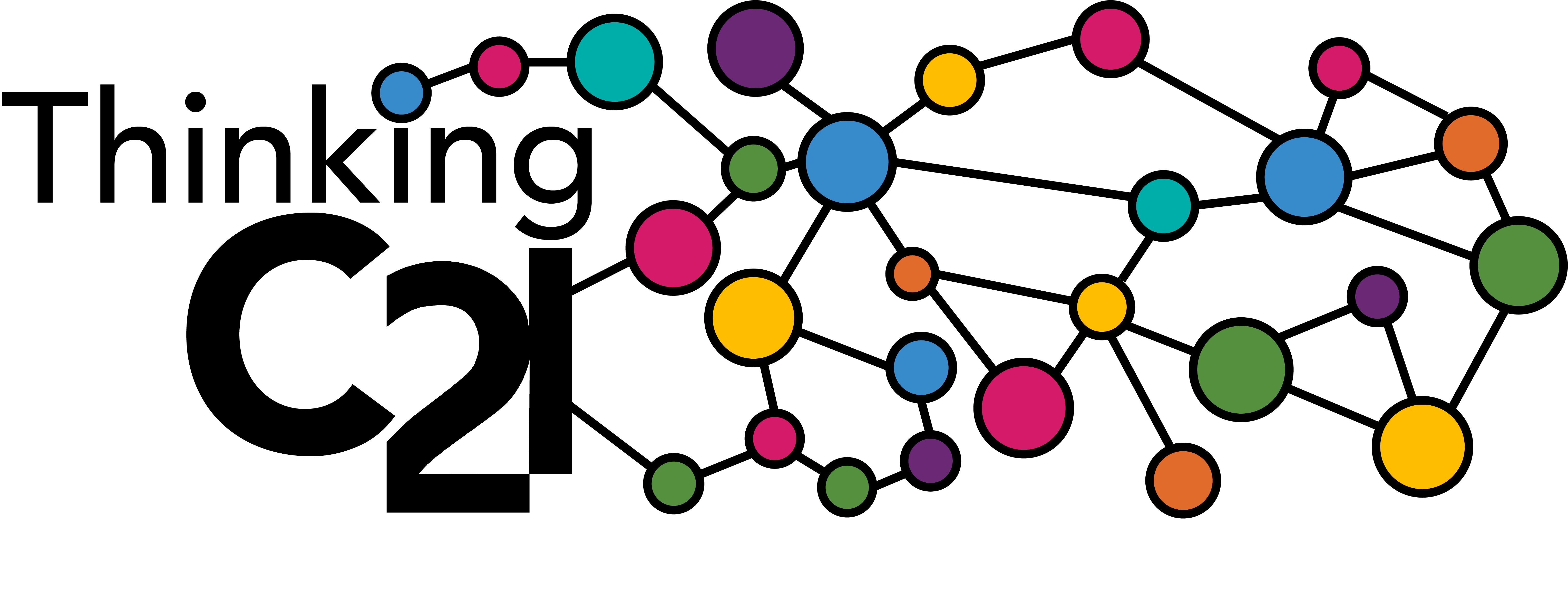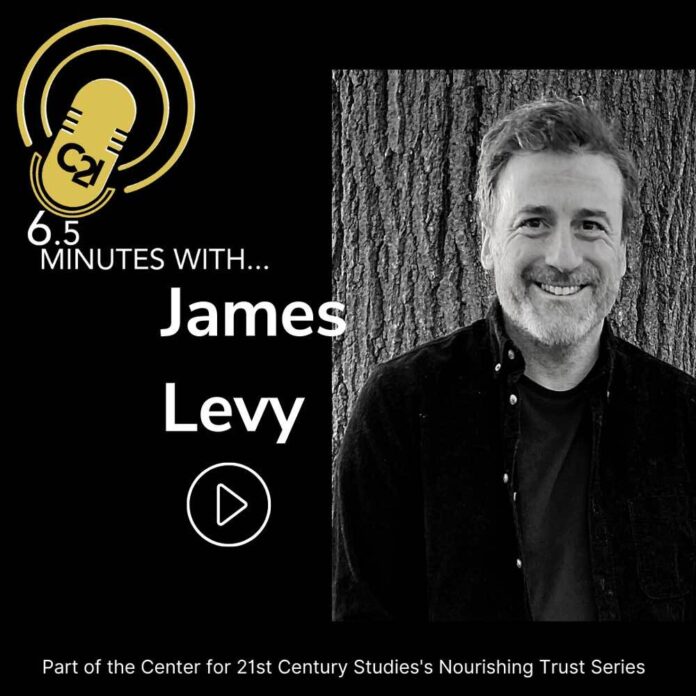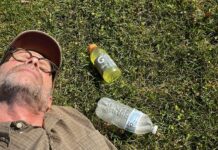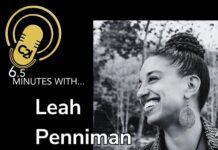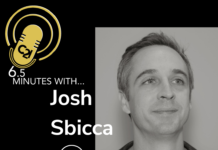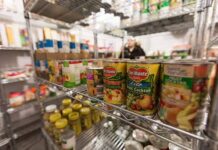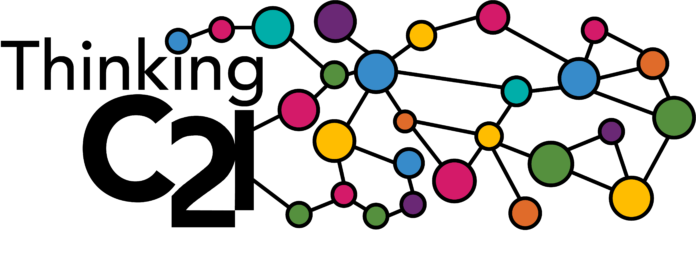Public historian, James Levy, talks about the power of history, sharing farming stories, and the Wisconsin Lands We Share initiative.
Transcript of the podcast:
Elaina Nelson:
You’re listening to 6.5 Minutes with C21. An audio introduction for the topics, experts, and leaders who take part in the conversations hosted by the Center for 21st Century Studies. I’m Elaina Nelson, a graduate student fellow at the Center. This week, our Deputy Director Nicole Welk-Joerger interviews James Levy, a public historian and founder of the Wisconsin Farms Oral History Project and Lands We Share initiative. This week, they spoke about the role of history in understanding food, land, and politics in the United States today.
Nicole Welk-Joerger:
So, how did you get to your projects? Both Lands We Share, but as well as whose land?
James Levy:
Well, I’m trained as a historian of African American history modern, and I was actually trained in intellectual history. I got really interested in this connection between the role of the scholar, and for lack of a better phrase, of the real world and the politics around that. And obviously, in black history, that’s huge. I started in 2011 at Whitewater, and what I noticed in contrast of teaching in New York, was that Wisconsin students were much more self-conscious and hesitant to talk about race. And I also noticed living In Madison and commuting to Whitewater how much farming and farmland was just such a key part of Wisconsin identity, even in cities because it’s so close. Building the public history program, I wanted to create an ongoing program — really get them engaged in doing work in an ongoing way. And so, the project that emerged from that was — we called it the Wisconsin Farms Oral History Project. Its purpose was to collect stories from people all over the state that intersected food, farming, and land on the one hand, with race and ethnicity on the other. And Wisconsin is an incredible state for that because you have this incredible black farming tradition that many people don’t know about because these rural communities have disappeared. But then, of course, you have the urban gardening tradition in Milwaukee, which is leading edge. And then you have all these ethnicities throughout rural and urban Wisconsin, third-largest Hmong population, you know, and a growing and very prominent Hispanic population of farm owners and also, of course, workers, etcetera, etcetera. Obviously the German and Finnish, and Swedish, the whole white ethnicity thing is powerful. In about 2016, we realized we need something now more concrete to do. And so that’s where the Lands We Share came from. But its purpose was then to tell through an exhibition that traveled the state to tell these featured stories of race and farming throughout the state.
Nicole Welk-Joerger:
Why is collecting and documenting histories like this important, especially in places like Wisconsin?
James Levy:
I mean, there’s so many ways to go at that question and you can start almost anywhere, but I would say one place to start is the current politics, like electoral politics. This whole purple state, battleground state, idea of Wisconsin. Wisconsin is this sort of laboratory for that. And it’s not new in Wisconsin history and we can say we’ve gone more and more purple, even more and more red, in certain years. But really, you know, you look back over its history and its always had this tension and that’s a tension that is national and it’s really a rural-urban tension in many ways. And I don’t want to even oversimplify that binary, but that’s very, very much alive, and so to understand that rural-urban tension, this is really important. And I think one of the reasons it’s important is that the deep narratives of rural America are really what’s at stake here. If we can puncture the narrative a little bit by creating counter-narratives, but also taking that narrative on and explaining how we get to that point, because in fact, rural America is vast majority white, especially when you look at farm operators. You know, if you look at farm census reports, you see that, but it wasn’t always that way and there’s always a majority white after, you know, white people took land from Indigenous nations. But there is an erasure that has happened throughout these Midwestern areas and the history of black farming, the history of more recent immigrant farming, the history of native farming, and anytime you take the myths that people invested in and open them up, it can lead to really productive things, it can also lead to hostility and reaction, right? If you don’t have the other side of it, that’s sort of what do you do next part of it? But that’s where stories come in, and I think that’s where investments in history come in because a story is an exchange between two people. It is a giving and a sharing. It’s creating of meaning in collaboration.
There’s another side to it which is seeing these stories of themselves or their ancestors or their, you know, the communities that they are from, inaction in engagement with work they maybe didn’t know about and work that they’re doing now still is empowering and grounding at the same time. One of the most exciting things for me is you look at Black Milwaukee and urban gardening, which is an incredibly powerful thing. But to know that, you know, urban gardening wasn’t invented by Will Allen in the 1990s, that there has been a continuous urban gardening tradition is really important. But then to go even beyond that, that’s what we try to go back a couple 100 years. And to show that not only are people bringing up farming and food traditions from the South, but they’re bringing them across the North and from rural Wisconsin, which is the other part of this whole project. In this whole work we do is that it’s also talking about common ground, that all of us have connections to food and almost all of us can find farmers pretty quickly in our genealogy somewhere. And to understand the meaning of having that in your past, and also the meaning of being ripped from that past in some cases. I think it’s extremely, it’s both an opportunity to find connections across politics, regions, cultures, but also a way to understand how we got here.
Nicole Welk-Joerger:
Going to the food justice concept — food justice is a huge concept; it has multiple dimensions. How do your projects address that topic?
James Levy:
I mean food is a natural part of farming and land histories, right? And what’s really powerful about food is that it is such a universal, and you know, I compare sometimes sharing stories to breaking bread. It’s an incredibly powerful way to get people to tell stories in the first place. It’s a powerful way for people to listen to stories and understand those stories. So, the indirect part of this is that there are other forms of justice — racial justice, economic justice —that food is the great vehicle for. But you’re asking about food justice itself and you know, the first thing that comes to my mind is our work in Milwaukee with Metcalfe Park Community Bridges. They keep coming back to health and nutrition. They keep coming back to the basics of feeding people. That’s why the garden is so important. If you don’t start with food justice, with health and nutrition and sustenance, then you cannot move to the next step.
Elaina Nelson:
To further engage with this interview, other conservations in participatory research, and reading activities hosted by the Center please visit our website at uwm.edu/c21. If not there, we hope to catch you when you have another 6.5 Minutes to spare.
